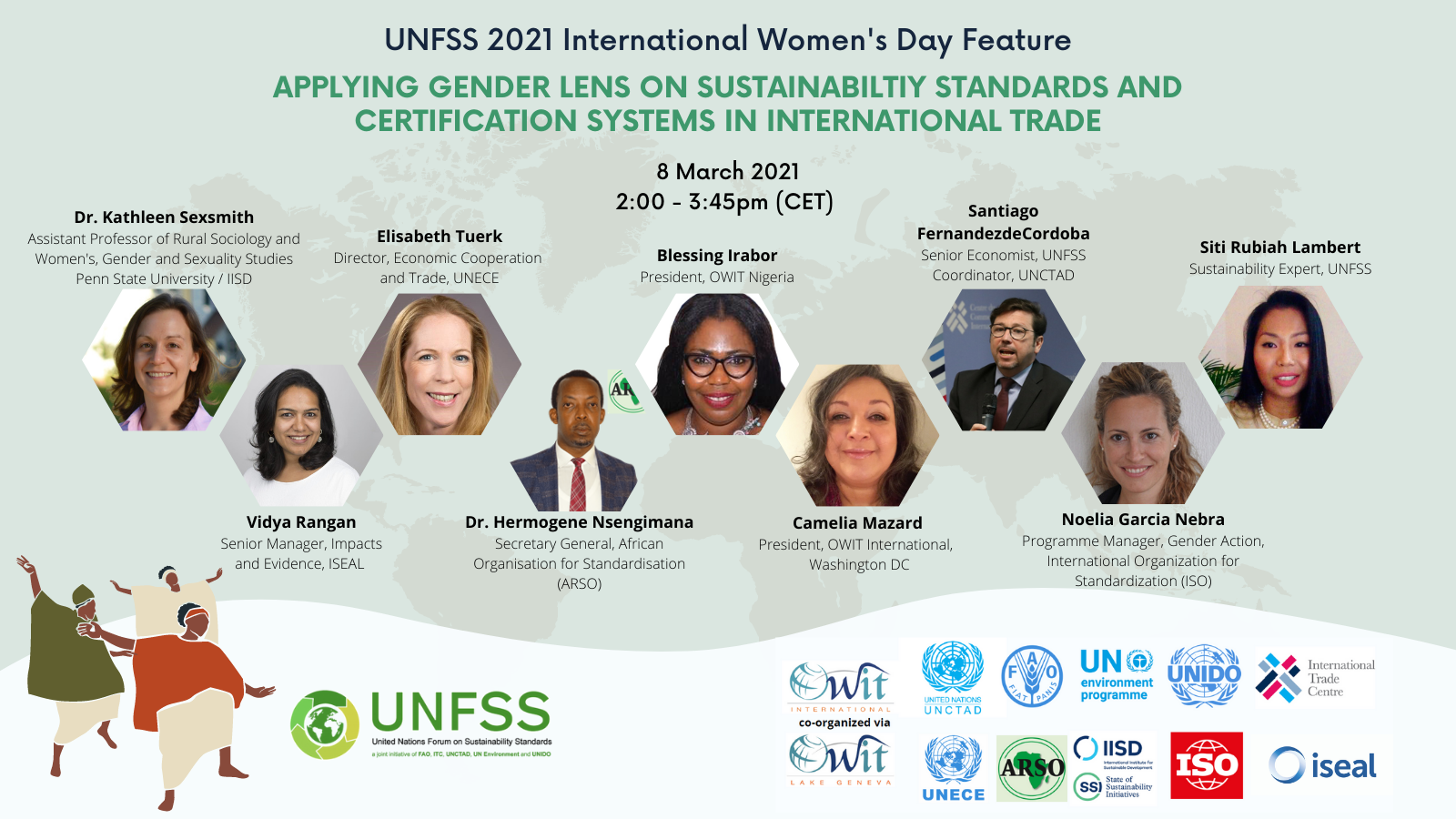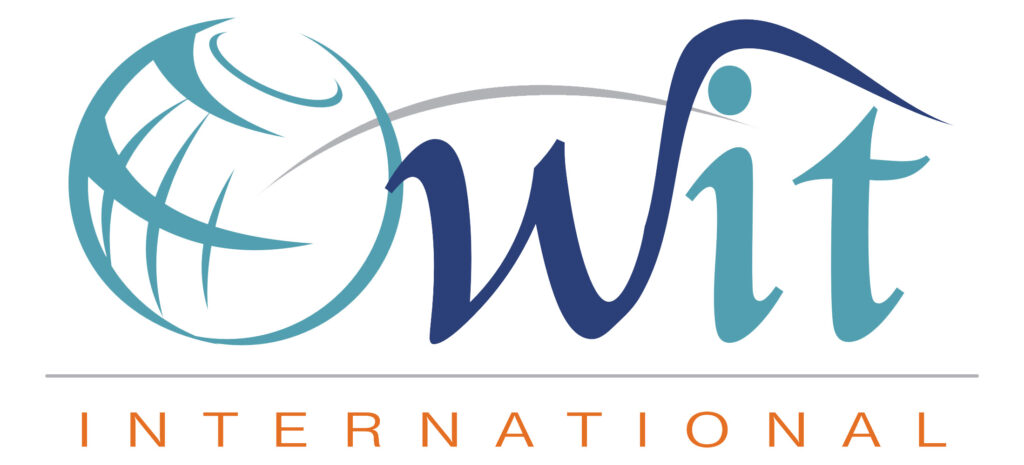
APPLYING GENDER LENS ON SUSTAINABILITY STANDARDS AND CERTIFICATION SYSTEMS FOR INTERNATIONAL TRADE
Please register at 2021 IWD: Applying Gender Lens to Sustainability Standards and Certification Systems for International Trade | UNFSS
Women account for 40% or more of the total labour force in many countries in 2019[1] and at least 33% of women make up the exporting workforce compared to 24% of non-exporting workforce in developing countries[2]. International trade has in fact created better jobs for women – the probability of women being in the informal sector reduced from 20% in sectors with low levels of exports to 13% in sectors with high levels of exports, providing them with opportunities for benefits, training and job security.
However, in the credit market, women entrepreneurs in developing countries tend to self-select out of the credit market because of their low perceived creditworthiness such as low financial literacy, risk aversion and fear of failure. These women would not apply for loans or lines of credit because they were often discouraged by the societal perception that their application would automatically be denied.
Furthermore, women engaged in cross-border trade often face a number of challenges, including time and skill constraints (women also spend more time performing unpaid work such as childcare and housework), burdensome custom requirements, as well as discriminatory and non-transparent non-tariff measures. Non-tariff measures raise compliance costs associated with procedures, regulations, and standards and certifications, which can be particularly burdensome for small enterprises with little experience in trade – as is the case for many women-owned firms. These challenges are a global problem that affects women disproportionately and can limit opportunities for women traders.
Sustainability Standards
Sustainability Standards are special rules that guarantee the products you buy do not hurt the environment and the people that produced them. It has emerged as new tools to address key sustainability challenges such as biodiversity, climate change and human rights. The UNFSS described Voluntary Sustainability Standards (VSS) as, “specifying requirements that producers, traders, manufacturers, retailers or service providers may be asked to meet, relating to a wide rage of sustainability metrics, including respect for basic human rights, worker health and safety, the environmental impacts of production, community relations, land use planning and others”. Although these standards are voluntary by nature, they have become a market reality and non-compliance can lead to the exclusion of producers from global value chains and exports, in general.
Sustainability standards also generates gender-sensitive assurances in the operational procedures and norms established by companies to drive systemic changes for women in supply chains and improve their overall working conditions. According to the International Institute for Sustainable Development (IISD), voluntary sustainability standards can potentially contribute to higher incomes for women in agriculture and women can also receive financial support provided through certification. This includes pre-financing or premiums that can contribute to women´s ability to access productive inputs and credit. When producer organizations support these measures, it can enhance women´s rights to productive agriculture resources.
The Dialogue
The need to raise global awareness about leveraging sustainability standards for gender equality and women´s empowerment should be compounded with practical questions such as:
- What are the opportunities to close the persistent gender gap in access to finance for women-owned businesses in developing countries?
- Do sustainability standards address the issues faced by women entrepreneurs and traders?
- How do we ensure that the certification system is gender responsive?
- What infrastructure is needed to ensure these are possible?
With these questions in mind, the objective of this dialogue is:
- to raise global awareness on the issues most women entrepreneurs and exporters face with regards to sustainability standards. Even if they can see the benefits of complying to these standards, the issue they are often faced with are the lacking means of financial, capacity and institutional support
- to put forward policy recommendations at national level on ways to facilitate a better infrastructure that eases women entrepreneurs to certify their products
- to discuss differentiated impacts of standards compliance for women in international trade, and its best practices to foster gender equality and women empowerment
